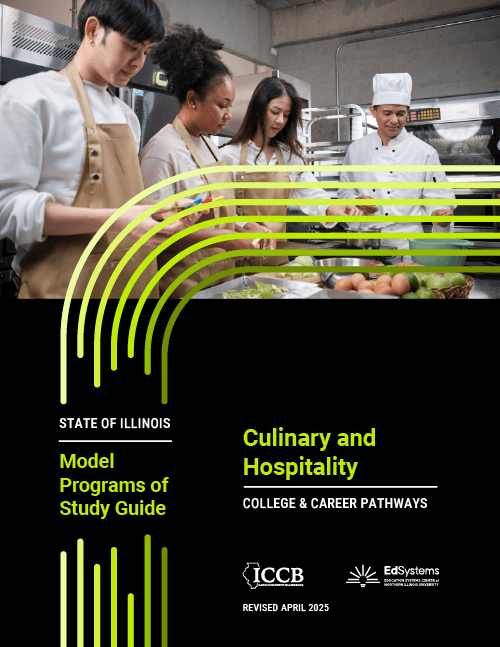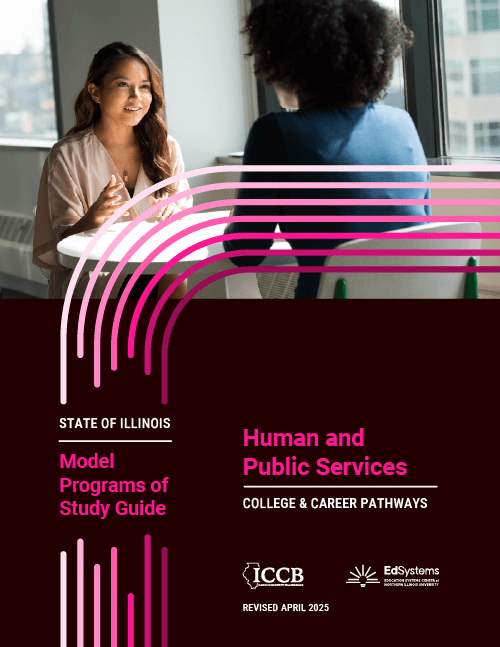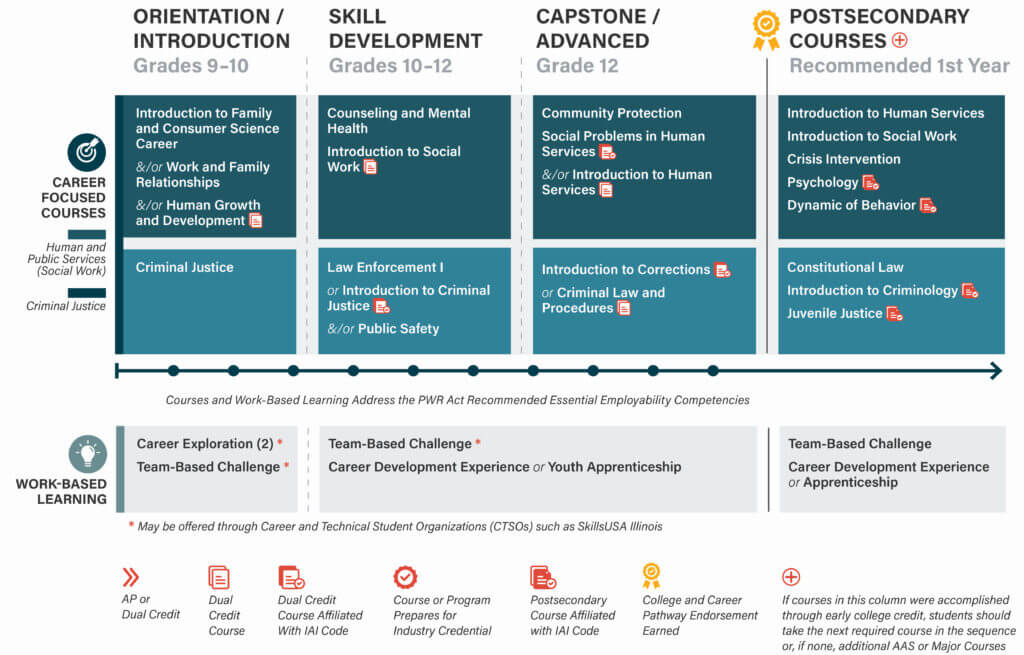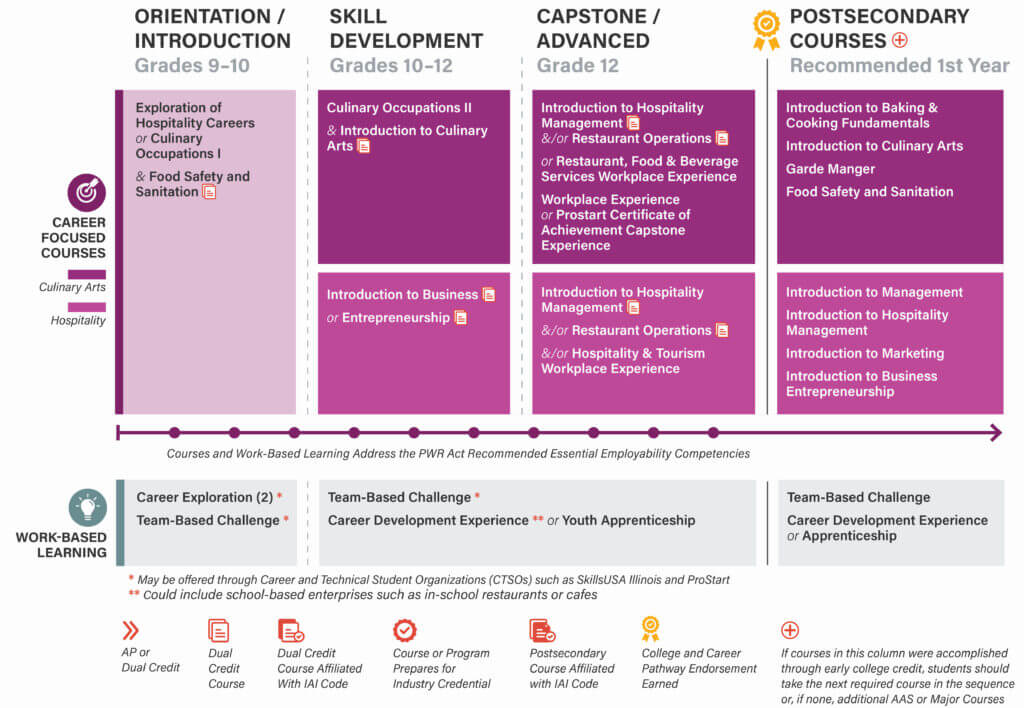Education Systems Center has released the two newest Model Programs of Study Guides in Human and Public Service and Culinary and Hospitality. The guides were finalized in October 2022.
New Guide Summaries
The industry sectors of culinary arts and hospitality and human and public service offer a robust amount of academic and employment opportunities. Each guide has unique pathways, entry points, and industry credentials that accelerate students toward degree completion and high-priority occupation options.
Human and Public Service
The Model Programs of Study Guide in Human and Public Services’ foundational certificate and associate degree programs are human and public service, social work, and criminal justice. These programs are generally associated with the behavioral health field. The career options that are closely affiliated with the aforementioned academic programs are mental health, counselors, community health workers, social workers, community service managers, police and sheriff parole officers, probation officers, dispatchers, etc. Human and public service associate degree programs easily transfer into the following bachelor’s degree programs: psychology, human and public service, sociology, social work, and criminal justice. In addition, to the various degree programs available in the industry sector, it is important to note the various industry credentials provided by the Illinois Alcohol and Other Drug Abuse Professional Certification Association. There are 18 certifications available that target occupations in counseling, criminal justice, family support, addiction recovery, and peer recovery.
Sneak Peek: Human and Public Service Career-Focused Courses
Culinary Arts and Hospitality
The Model Programs of Study Guide in Culinary Arts and Hospitality includes the most foundational certificate and associate degree programs in this industry sector: culinary arts, hospitality management, event planning, travel and tourism, and baking and pastry arts. These degree programs are commonly associated with the following occupations: event planners, general and operations managers, sales managers, head cooks, food service managers, etc. Both culinary arts and hospitality programs generally transfer to four-year universities. Hospitality-focused bachelor’s degrees are either standalone academic programs or embedded in a school’s business degree offerings with a hospitality concentration. Students who are interested in culinary arts are encouraged to obtain a variety of ServSafe industry credentials.
Sneak Peek: Culinary and Hospitality Career-Focused Courses
Background on the Illinois Model Programs of Study
Previously, Illinois Model Programs of Study Guides were released for eight additional industry sectors: agriculture, food, and natural resources; architecture, construction, and energy; arts and communications; education; finance and business services; health sciences and technology; information technology; and manufacturing and engineering. The Illinois Community College Board sponsored the development of Model Programs of Study Guides as part of the Illinois State Plan for Strengthening Career and Technical Education for the 21st Century Act (also known as Perkins V).
The primary purposes and goals for the Illinois Model Programs of Study Guides are to provide guidance and exemplars for local colleges to adopt or customize as they develop programs of study for approval as part of the Perkins V State Plan, identify priority dual credit courses that are foundational to the industry area, and define the competencies that should be sequenced across a program of study to prepare students for the future of work in that industry area.
Need Additional Support With Implementation?
EdSystems provides support to community colleges, high school districts, and Education for Employment organizations by facilitating conversations on the implementation of the Illinois Model Programs of Study Guide. If you are interested in hosting a session for key stakeholders in your region, please complete the connect form below.







